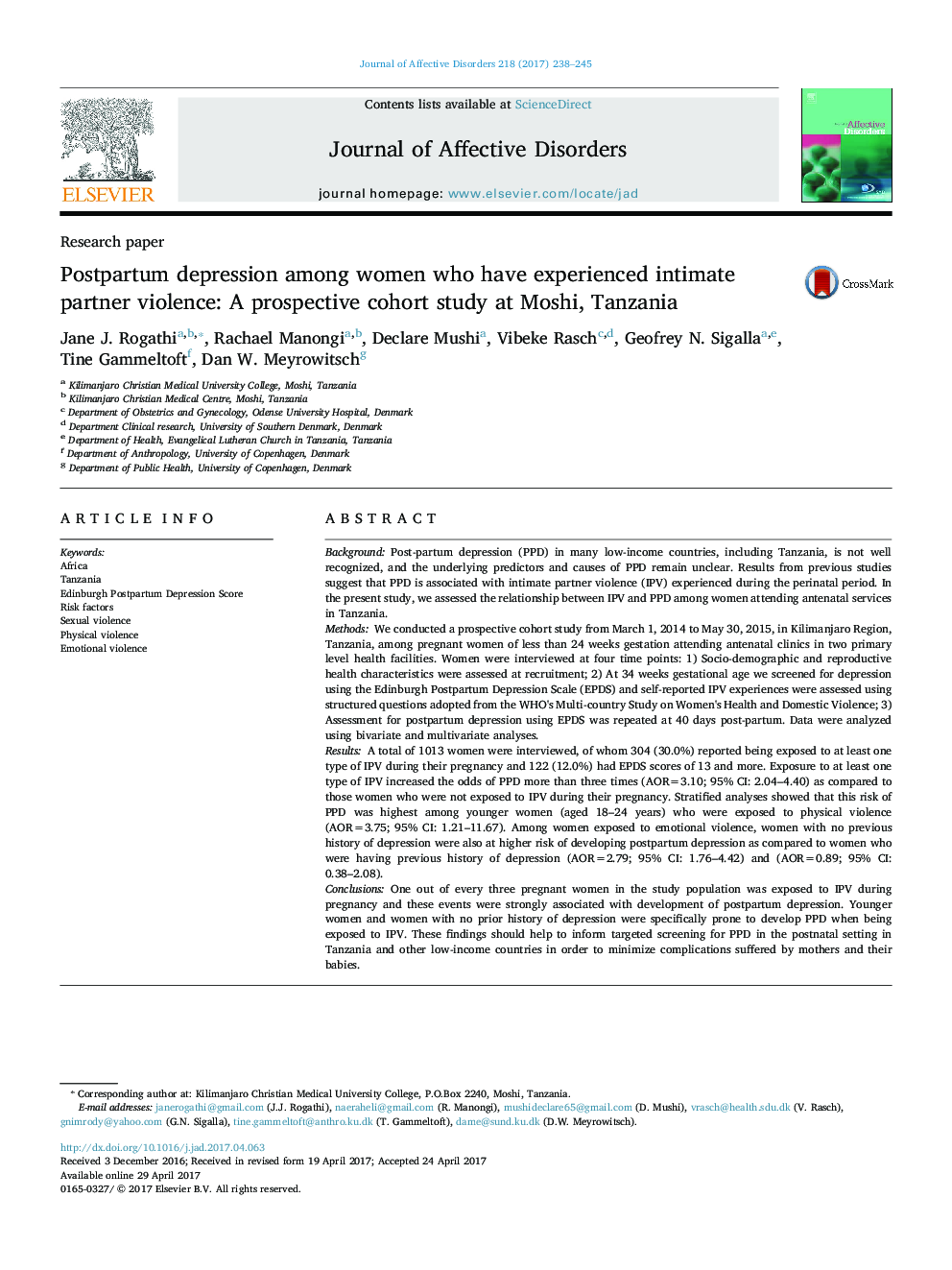| کد مقاله | کد نشریه | سال انتشار | مقاله انگلیسی | نسخه تمام متن |
|---|---|---|---|---|
| 5721952 | 1608107 | 2017 | 8 صفحه PDF | دانلود رایگان |

- Intimate partner violence is associated with postpartum depression.
- The most vulnerable group are the women, especially in low income countries.
- More resources are needed to be allocated for mental health care settings.
- Creating awareness and training to societies and amongst policy makers is of importance.
- Studies should evaluate interventions to help these women in health setting.
BackgroundPost-partum depression (PPD) in many low-income countries, including Tanzania, is not well recognized, and the underlying predictors and causes of PPD remain unclear. Results from previous studies suggest that PPD is associated with intimate partner violence (IPV) experienced during the perinatal period. In the present study, we assessed the relationship between IPV and PPD among women attending antenatal services in Tanzania.MethodsWe conducted a prospective cohort study from March 1, 2014 to May 30, 2015, in Kilimanjaro Region, Tanzania, among pregnant women of less than 24 weeks gestation attending antenatal clinics in two primary level health facilities. Women were interviewed at four time points: 1) Socio-demographic and reproductive health characteristics were assessed at recruitment; 2) At 34 weeks gestational age we screened for depression using the Edinburgh Postpartum Depression Scale (EPDS) and self-reported IPV experiences were assessed using structured questions adopted from the WHO's Multi-country Study on Women's Health and Domestic Violence; 3) Assessment for postpartum depression using EPDS was repeated at 40 days post-partum. Data were analyzed using bivariate and multivariate analyses.ResultsA total of 1013 women were interviewed, of whom 304 (30.0%) reported being exposed to at least one type of IPV during their pregnancy and 122 (12.0%) had EPDS scores of 13 and more. Exposure to at least one type of IPV increased the odds of PPD more than three times (AOR=3.10; 95% CI: 2.04-4.40) as compared to those women who were not exposed to IPV during their pregnancy. Stratified analyses showed that this risk of PPD was highest among younger women (aged 18-24 years) who were exposed to physical violence (AOR=3.75; 95% CI: 1.21-11.67). Among women exposed to emotional violence, women with no previous history of depression were also at higher risk of developing postpartum depression as compared to women who were having previous history of depression (AOR=2.79; 95% CI: 1.76-4.42) and (AOR=0.89; 95% CI: 0.38-2.08).ConclusionsOne out of every three pregnant women in the study population was exposed to IPV during pregnancy and these events were strongly associated with development of postpartum depression. Younger women and women with no prior history of depression were specifically prone to develop PPD when being exposed to IPV. These findings should help to inform targeted screening for PPD in the postnatal setting in Tanzania and other low-income countries in order to minimize complications suffered by mothers and their babies.
Journal: Journal of Affective Disorders - Volume 218, 15 August 2017, Pages 238-245